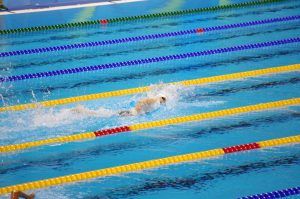
Katie Ledecky and The Power of Asking “Why Not?”
Swimmers often find themselves stuck with doubt when it comes to doing tough things in the water. Here’s a simple question to ask when you find doubt and uncertainty stopping you from excellence.
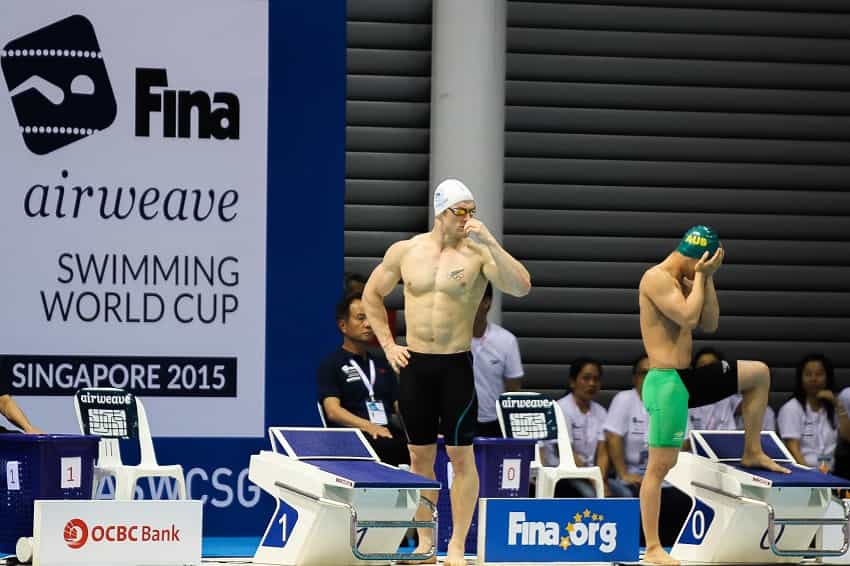
It’s inevitable. At some point over the course of your swimming career things will go sideways on you at a time when you expect and want it least.
It’s in those moments that mental toughness and mental training come into play and help you power through those moments of adversity so that you can still swim at your best.
Look…
This summer in Brazil it’s not necessarily the athlete that trained hardest that is going to emerge with the gold—it’s going to be the athlete that can put aside the distractions going in and around their events.
Security concerns, Zika, dirty water, swimming finals in the morning, a political system in disarray and chaos—and on and on, there are distractions and reasons aplenty for decreased performance.
This is why, for high performance athletes, mental training becomes as critical as the work in the pool.
After all:
There are a variety of things you can do to improve the mental aspect of your swimming.
From self-talk, to employing various kind of visualization techniques, to learning how to properly set goals that increase the likelihood of you achieving them, there is a mountain of different things you can tackle.
The key is zeroing in on the areas where it can impact your performance.
From my own personal experience and from that of working with swimmers over the years here are three of the fundamental things the enterprising young swimmer can do to “hack” the mental side of the sport:
Michael Phelps has his characteristic bent over arm swings when he steps up onto the blocks. Each time, performed identically, without fail. It helps set him into the moment and get focused on swimming fast.
Develop a simple and habitual routine that you do before each race that helps you settle your mind and get you into the zone. It can be listening to a specific song, doing a series of specific stretches, and so on.
The most important thing to remember when doing this is to keep your little routine simple and purely based on yourself.
I get a lot of emails from newsletter subscribers asking about last minute help the night before the big race. Outside of breathing deeply and having fun, at this point there isn’t really that much to be done. The work has already been done.
But if you want to develop mental toughness over the long term be willing to practice it on the regular. How you react to the little things is the way you are going to react to the big things.
So when your teammate is riding your butt for the duration of warm-up, or you are feeling overwhelmed with homework, or you get cut off traffic, use those little moments as your proving ground for mental toughness.
Mental toughness and resilience is like a muscle, something you can build through the trivialities of day to day life. It’s also the reason that from time to time coach likes to push and challenge you in practice to do things you’ve never done before.
The fastest way to separate yourself from the competition is to not just have goals, but to write out a plan to make them happen.
Putting words to action takes you from the wishful thinking swimmer who always talks a big game about the grand things they hope to accomplish in the water to being the athlete who shows up every day and is actively doing something about it.
This means writing out your goal, writing out what it’s going to take to get there, and building yourself a routine and schedule in order to act with ruthlessness.
Having a plan keeps you focused on doing the things that matter, as opposed to getting caught up in the things that others are doing. When you have this kind of focus and attention to your own progress you are less likely to get knocked off kilter when something unexpected happens.
So much goes into swimming fast.
We invest thousands of hours swimming back and forth in the neighborhood pool, kicking, pulling, sculling, doing heaps and heaps of drills, test sets, and hellish training camps, all the while hoping for that day when we step up on the blocks and unleash all of our hard work upon the competition.
If you are looking for a way to bullet-proof those critical performances, for a way to insure that your hard work will be properly represented when you hunch over and lightly pull on the blocks, then spend some time working on getting your mental game tight and strong too.
At What Age Should Swimmers Start Mental Training? Coaches and elite swimmers talk about how the difference is often mental when it comes to performance. Here are some thoughts and suggestions for when swimmers should start dialing in the mental side of the sport.
Subscribe to the YourSwimLog.com newsletter and get tips and advice on how to swim faster every weekday morning, straight to your inbox.
Join 33,000+ swimmers, coaches, and swim parents learning what it takes to swim like a boss.
Unsubscribe anytime. Email will never be shared or sold.

Olivier Poirier-Leroy Olivier Poirier-Leroy is the founder of YourSwimLog.com. He is an author, former national level swimmer, two-time Olympic Trials qualifier, and swim coach.

Swimmers often find themselves stuck with doubt when it comes to doing tough things in the water. Here’s a simple question to ask when you find doubt and uncertainty stopping you from excellence.
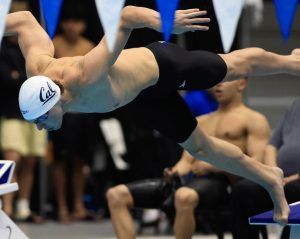
Looking to take your mindset and swimming to the next level? Here are five things you can learn from Jack Alexy, one of the fastest freestylers on the planet. American Jack Alexy has joined the ranks of elite sprinters in the world. Now 21 years of age and standing a
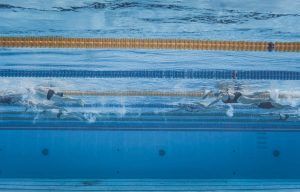
Looking to improve faster this season? Start by reflecting and learning from your swims.
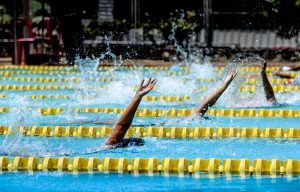
Going to swim practice feeling like a struggle? Here are some proven strategies and tips to conquer today’s swim practice, even though you might not be feeling it.
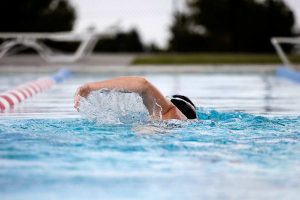
Feeling stuck with your journaling? Here are some journaling prompts for swimmers to build self-awareness, confidence, and help swimmers maintain perspective over the course of the swim season.

Swimmers invest a lot of time in the water over the course of the season. The two-a-days, long swim meets, and the perpetual sogginess can be difficult to bear for even the most motivated of swimmers. In the moments when you are struggling with commitment or motivation, it’s a great

LANE 6 PUBLISHING © 2012-2024 · PRIVACY POLICY · RETURN POLICY · TERMS OF SERVICE · AFFILIATE DISCLOSURE